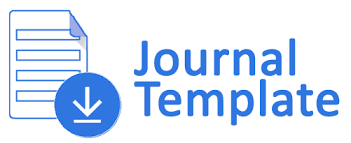The Correlation between Students’ Vocabulary Mastery and Their Reading Ability at Tenth Grade of SMAN 5 Kabupaten Tangerang
DOI:
https://doi.org/10.32678/ell.v2i1.7783Keywords:
correlation study, Reading Ability, Vocabulary MasteryAbstract
The purpose of this study was to determine the relationship between students' vocabulary mastery (X) and their reading ability (Y) in the tenth grade of SMAN 5 Kabupaten Tangerang in the academic year 2019/2020. There were 80 students from 403 students of population taken as the sample of this study who were determined using random sampling techniques. The data collected was analyzed using Pearson Product Moment Correlation and the instrument used was a student's vocabulary mastery test and a student's reading ability test. In addition, research findings indicate that there is a high correlation between students' vocabulary mastery and their reading ability. It is assumed that the alternative hypothesis (Ha) in this study was accepted and the null hypothesis (Ho) is rejected. There was correlation between students' vocabulary mastery and reading ability is accepted. In conclusion, the results of the hypothesis test between students' vocabulary mastery and reading ability in tenth grade at SMAN 5 Kabupaten Tangerang shows a positive correlation. There is a high correlation between students' vocabulary mastery and their reading ability at the SMAN 5 Kabupaten Tangerang with r-coef = 0.707. However, students must improve their learning, use their time perfectly, and have good mastery in memorizing vocabulary. In reading skills, students are strongly advised to always read books. So students are familiar with the support of English conversation.
Downloads
References
Arikunto, S. (2013). Prosedur Penelitian : Suatu Pendekatan Praktik. Jakarta: Rineka Cipta.
Brown, H. D. (2003). Language Assessment: Principles and Classroom Practices. New York: Longman.
Creswell, jhon w. (2009). Research design Qualiative, Quantitative, and Mixed Methods Approaches (third edit). london: SAGE.
D. S. Bahri. (2018). The Correlation Between Students’ Vocabulary Mastery and Their Reading Comprehension at The Seventh Grade Students’ of MTS Daarul Ihsan. Professional Journal of English Education, 1(2), 77–84.
Fatmawati, S., & Usman, H. (2014). the Correlation Between Students’ Achievement in Vocabulary and Reading Comprehension of the Eleventh Grade Students. E-Journal of English Language Teaching Society (ELTS), 2(3), 1–14.
Fraenkel, J. R., & Wallen, N. (2009). How to Design and Evaluate Research in Education. In McGraw Hill (Sevent Edi). New York: Longman.
Gushendra, R. (2017). An Experimental Study: Improving Students’ Vocabulary Mastery by Using English Songs. 3(1), 53–64.
Hayati, A. (2016). The Correlation between Indonesian Students ’ Vocabulary Mastery and Their Reading Comprehension. 23(2), 95–99.
L. S. Stæhr. (2008). Vocabulary size and the skills of listening, reading and writing. The Language Learning Journal, 36(2), 139–152. https://doi.org/10.1080/09571730802389975
Lessard, C. (1969). English Language Teacher Development Series. In Thomas S. C. Farrel (Ed.), Teaching Vocabulary (Vol. 53). https://doi.org/10.1111/j.1540-4781.1969.tb04998.x
Ningsih, S. (2017). Improving the Students ’ Ability in Reading of Narrative Text Trought Question Answer Relationship at The Tenth Grade of Man Binjai. North Sumatera Medan.
Ortlieb, E., Verlaan, W., & Cheek, E. H. (2015). Vocabulary/ Comprehension-Based Models of Reading Clinics. Literacy Research, Practice and Evaluation, 2, 117–136. https://doi.org/10.1108/S2048-0458(2013)0000002009
Riduwan, D. (2012). Riduwan.pdf. Bandung: AlfaBeta.
Schiefele, U., Stutz, F., & Schaffner, E. (2016). Longitudinal relations between reading motivation and reading comprehension in the early elementary grades ☆. Journal Learning and Individual Differences, 51, 49–58. https://doi.org/10.1016/j.lindif.2016.08.031
Sugiyono, P. D. (2015). Metode Penelitian Pendidikan. Bandung: AlfaBeta.
Suri, E. M. (2012). Improving Students’ Vocabulary Mastery by Using Songs at The Grade Sixth of State Elementary School of 45 Bungo Pasang Padang. Jurnal Pendidikan, 1(1), 110–123.
Wasik, B. A., Hindman, A. H., & Snell, E. K. (2016). Book reading and vocabulary development: A systematic review. Early Childhood Research Quarterly, 37, 39–57. https://doi.org/10.1016/j.ecresq.2016.04.003
Wixson, K. K., Peters, C. W., Weber, E. M., & Roeber, E. D. (1987). New directions in Statewide Reading Assessment. The Reading Teacher, 40(8), 749–754. Retrieved from http://www.jstor.org/stable/20199614 .
Downloads
Published
Issue
Section
License
Copyright (c) 2023 Muhammad Abdul Habil, Agus Mulyana, Hery Nuraini

This work is licensed under a Creative Commons Attribution-ShareAlike 4.0 International License.






